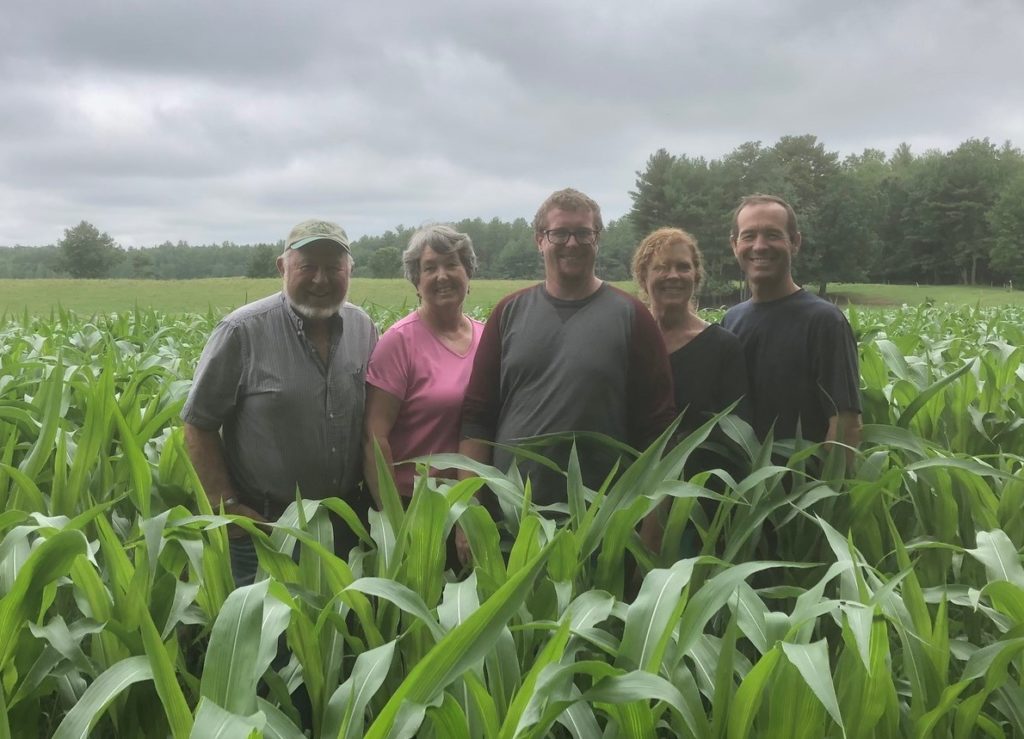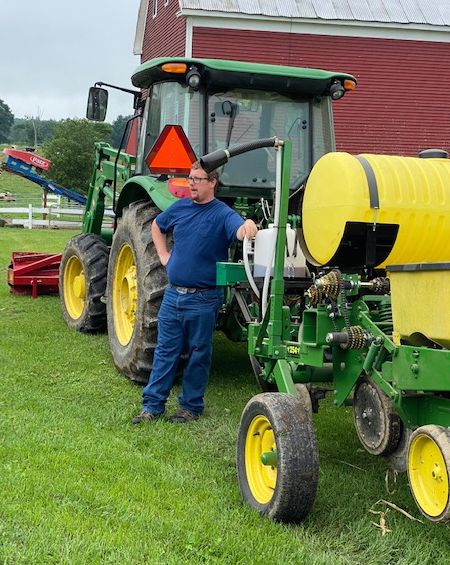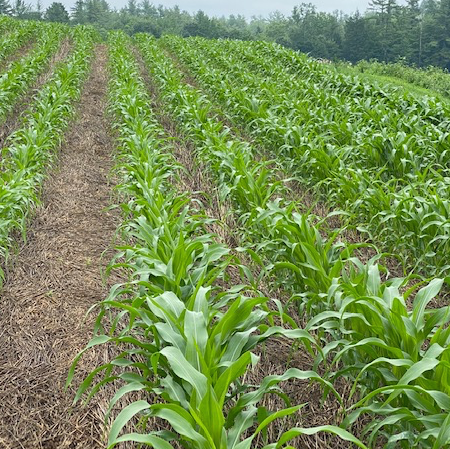
The Harris Farm is Maine’s 2021 Dairy Farm of the Year | Green Pastures Awardee
Across 600 acres, the Harris family, Dayton, Maine continue their “life’s work, hobby and passion”, using each season to focus on something for the farm, and the community. This work was honored when the farm was recognized as Maine’s 2021 Dairy Farm of the Year. The family grows food and cares for a cow herd that provides fresh milk that’s bottled and sold directly to customers. During summer the farm is a popular summer stop for sweet corn and fresh produce, and in winter, the farm is a respite for outdoor exploration on their ski trails.
For more than three decades the farm has expanded their business. They sell their bottled milk farm-direct at their store, and wholesale to area retail outlets, as well as home delivery.
Their milk is popular year-round, sought by customers throughout southern Maine. Farm direct and agritourism balance the family business. Their cross-country ski trails are carefully managed to provide a winter on-farm experience. As the temperatures warm, customers eagerly await fresh produce in the summer and fall harvest months. The farm completes their integrated system by composting all the manure to use on the fields and crops.
In 2021, the family’s work and passion was acknowledged when their dairy farming peers nominated them for Maine Dairy Farmer of the Year | Green Pastures Award. Fourth generation farmer Jake Harris manages the family’s 35-cow dairy herd. Jake cares for the cows, milks, and plans the pasture rotation in grazing months. He also focuses on ecological and soil health, using no-till techniques for the feed they grow for the cows, allowing them to carefully manage herd health and nutrition.
Helpful Stewardship Technique
With each generation of the family business, the farm works to improve their stewardship. One example has been including no-till planting. This technique aims to retain field integrity by reducing the land that is plowed for planting. It is one way to reduce the risk of erosion and loss of crop quality, in addition to ecological benefits.
Another tool to help with ecologoical benefits is a roller-crimper. It flattens tall, rye grass that is standing in a field. Flattening the rye grass has at least two purposes. First, it can be a form of mulch. Second, it is necessary to prepare the field for planting new seed. The new seed, for example, corn, can be planted into the soil under the rye grass. Using a no-till planter attached to the back of the tractor, new seed can be planted where the flattened rye once stood.
The planter is set at predetermined widths to ensure the future rows of corn grow properly spaced. This spacing has multiple purposes. For example, at the ideal spacing, it can help ensure healthy, sturdy plants and resourceful harvesting. And, alongside the flattened rye grass, it adds another way to reduce weed competition. The flattened rye grass will decompose into organic matter, but also provide a source of protection for newly planted seed that becomes tender young plant shoots.
No-Till Tools
No-till planting can be used for a variety of seeds. When it is time to plant the seed, a multi-step action occurs in a matter of minutes. First, a gravity-fed bin holds the seed in the planter. As the tractor and planter move forward, a series of levers and pulleys move in concert on the planter. Round blades on the planter cut a thin slice into the soil. This allows the seed to be planted at the correct depth, and make contact with the soil. This can help ensure good seed germination and growth of the future plant (for example, rye grass, or corn stalks). As the tractor and planter roll forward, the soil is lightly pressed to cover the seed. This process is repeated until planting is done for the field or area.
Congratulations to Harris Farm, the 2021 Maine’s Dairy Farm of the Year!
-

 Jake standing in front of a tractor and two pieces of equipment, the roller crimper in front of the tractor, and the no-till drill seed planter at back of the tractor. Both pieces of equipment play a role in healthy crop and land stewardship goals.
Jake standing in front of a tractor and two pieces of equipment, the roller crimper in front of the tractor, and the no-till drill seed planter at back of the tractor. Both pieces of equipment play a role in healthy crop and land stewardship goals. -

Rolled-Crimped winter rye and corn at Harris Farm Dayton, Maine. The farm grows different types of corn for separate purposes: for the cows, and for farm customers. The corn planted for cows is chopped and used as additional feed. This image shows young corn growing green leaves, and the winter rye remains flattened and composting into the field.
